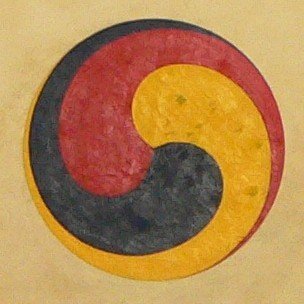This is a strange and particular time. I feel like I’ve heard that in a million different ways in the past couple of months since the Covid pandemic turned all our lives upside down. For some of us, there’s been drastic change-we’ve lost our jobs and have been sick or known someone who has been sick or even died. For others, like myself, our lives have pivoted to working at home and having our children home 24/7, which carries its own set of challenges.
For most of us it’s been a combination of extremely difficult and a breath of fresh air. One thing is for sure, like no other time have I had to lean on the wisdom teachings of my spiritual life. The Buddhist teachings, in particular, have so much to offer during this time of uncertainty and I am incredibly grateful I have this well of wisdom to draw upon right now.
According to the Buddhist teachings life is marked by three truths of existence: impermanence, egolessness, and suffering (sounds pretty depressing I know, but stick with me).
Impermanence
Somehow people feel insulted when faced with the truth of impermanence. We’ve worked so hard to keep everything stable, to be in control of our lives and circumstances and we’ve actually done a pretty good job. And then something like the Corona virus comes along and totally rearranges everything. It feels insulting. But we’ve forgotten that everything is always changing. We accept this as an elementary truth but when it actually affects our lives it’s like we’ve woken from a dream. On an everyday level, when things are going relatively smoothly, change is not that difficult: day becomes night, seasons change, we get a few more wrinkles, our kids learn to read… but when a big change happens such as a death or pandemic, we realize that we’re much more comfortable when everything is seemingly predictable and stable.
If we live in the States or another affluent country, we’ve been shielded from the truth of impermanence for many decades. If you experienced the Tsunami in Japan in 2011 or Indonesia in 2004 or if you lived in Syria in the past few years, the truth of impermanence is much more real. So how do we work with this truth now that it’s arrived at our front door step? The first thing to do is to accept it, which seems obvious but it’s not always that easy. With the truth of impermanence, we can begin to slowly accept the truth of change by remembering and seeing that it’s been there all along. We can slowly relax and allow life to unfold without trying to chart the course or change reality. Of course, it’s good to make plans and have routines, but the more we accept the truth of impermanence the more agile we become as the circumstances of our world and life shift under our feet.
Egolessness
The second mark of existence is egolessness, which basically means we don’t actually have a solid self. This has become more apparent with the Covid pandemic because all of those routines and activities that gave us a sense of self have been stripped away and we’re left metaphorically naked, wondering who we are. As an extrovert, I’ve realized how much social activities kept my ego feeling solid. Every week I’d fill up my calendar with play dates for me and my son, shopping, drinks with friends, going out to eat, going to concerts… and while I’m super excited to go hear live music again (can I get an amen?) having all of these “non-essential” activities suddenly stripped away has made me realize how much they bolstered up my ego, or sense of solid self, and I’ve actually felt a sense of relief to have more space in my life to examine a deeper sense of self.
Egolessness does not mean we are left with no personality or opinions, it simply means we accept the truth that we are always changing and this person who we sometimes take so seriously, is actually an aggregate of fluctuating experiences. Having egolessness means having a more flexible identity, becoming more adaptable, light, and playful with life’s constantly fluctuating circumstances. As Pema Chödrön puts it, “we insist on being Someone with a capital S. We get security from defining ourselves as worthless or worthy, superior or inferior. We waste precious time exaggerating or romanticizing or belittling ourselves with a complacent surety that yes, that’s who we are. We mistake the openness of our being-the inherent wonder and surprise of each moment-for a solid, irrefutable self”. Egolessness is good news because it means we can evolve and change as our world changes.
Suffering
Oh this one is a doozy. Who wants to hear about suffering? How depressing. But actually the marks of existence are not trying to convince you of anything or sway your opinion, they simply point out the facts of life. Suffering is a fact of life. There are different types of suffering, some more acute than others, but the truth is, if you’re on this earth, you probably suffer some. And so the best thing to do is accept and even embrace suffering as part of life and not feel like there’s something wrong with us because we suffer. Of course, life is full of all kinds of textures-joy, anticipation, disappointment, love, fun, loneliness-suffering actually comes when we resist this fluid situation. Suffering comes from wanting to hold on and grasp our lives’ circumstances and make them predictable and certain. Our prejudices and addictions are patterns that arise from the fear of a fluid world.
During this uncomfortable time, we can learn to include suffering as part of our experience, rather than push it away. One powerful way to do this is to simply stop (the hard part) and just feel in your body where you’re tight, where you’re grasping. The stomach might be tight, our jaw is clenched, we have a tightness in the chest. Just be with that and breathe. Extend kindness to yourself and remember that feeling discomfort is a fact of life, in fact, it means you’re alive!
~~~~
My teacher, Chögyam Trungpa Rinpoche used to say that there is no cure for hot and cold. They are facts of life. We can notice our tendency to always seek comfort from these facts of life. Sometimes we do that by further compounding our suffering. For example we might indulge in addictions to feel good and safe, but we actually end up feeling worse. I remember being on a camping trip when I was a kid and not wanting to leave the comfort and safety of my sleeping bag because it felt too cold and harsh outside. I ended up missing the hike and feeling so sad and regretful about it.
We can use the teachings on the three marks of existence, to actually cheer up and be with things as they are-always shifting. We can be kind to ourselves knowing that it’s not always easy to be alive but as Suzuki Roshi put it, “it is only by practicing through a continuous succession of agreeable and disagreeable situations that we acquire strength”. You don’t have to necessarily do anything to practice the powerful teachings on the three marks of existence, it’s more about being with things as they are, letting go and relaxing as the unknown future unfolds, we’re all in this together.
Original article can be found here: https://strongheartleadership.com/2020/05/28/how-the-buddhist-teachings-can-help-us-during-this-strange-and-particular-time/



